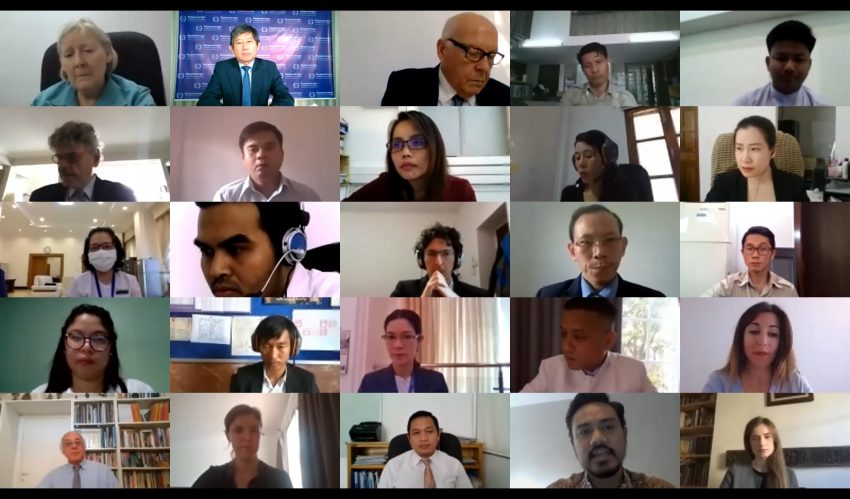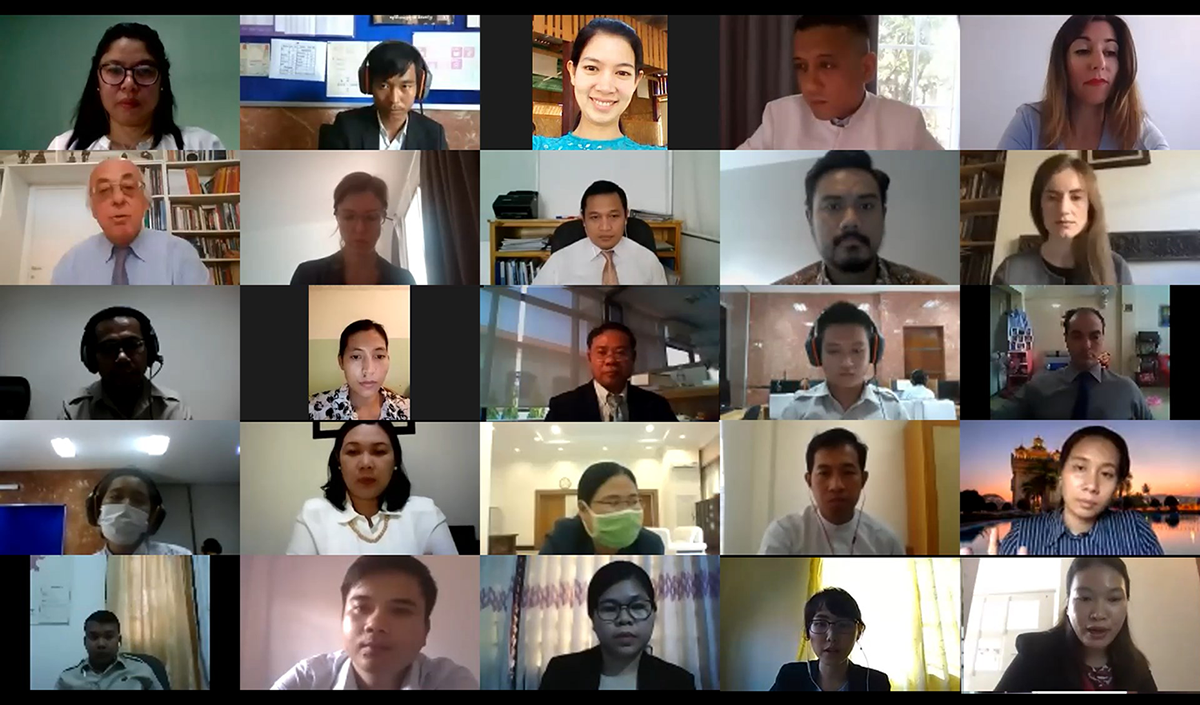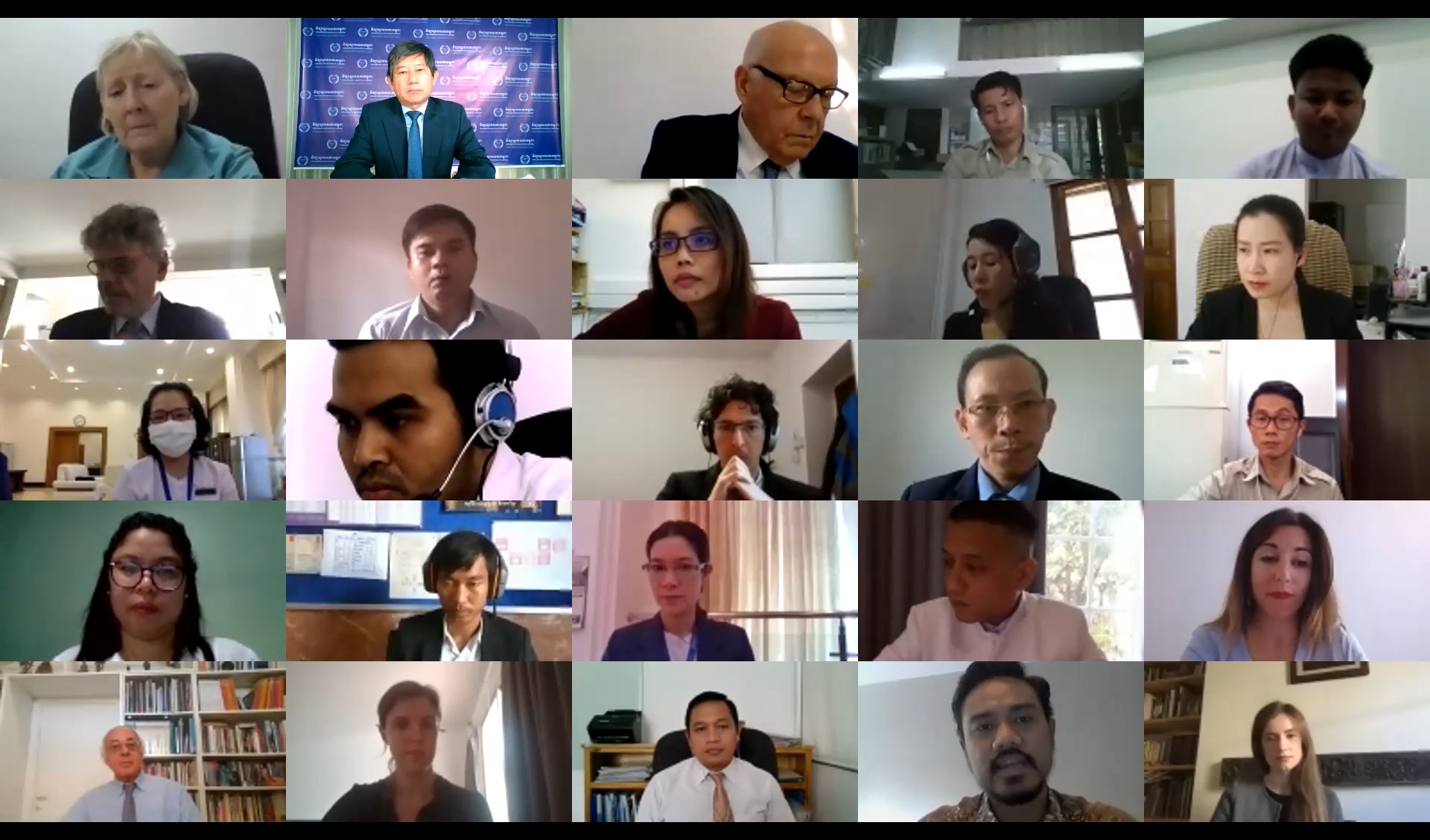The Second Intake of PIC Regional Fellowship Program on Parliamentary Diplomacy (RFPPD) was launched on 20 April 2020 through teleconferencing. Course experts, directors and fellows, along with a guest speaker, joined the inaugural event, thanks to online technology that enabled introductions and discussion to take place simultaneously in Asia and Europe.
In his welcoming remarks, the PIC Executive Director, Mr. Dararith Kim-Yeat, alluded to the challenges posed by the COVID-19 lockdown – and the way in which it had changed so much about the way people interact. This has implications for the way in which diplomacy is conducted, he said, and this online event was an example of how the technology could actually bring people closer together. It had also enabled PIC to expand its existing experience of `blended learning’ (representing a mixture of face-to-face and online learning) to `blended working’ and other activities.
The Deputy Secretary General of the ASEAN Inter-Parliamentary Assembly (AIPA), Mr. Mario Pandu Dewono, standing in for the Secretary General, the Honorable Mrs. Nguyen Tuong Van, echoed these remarks, welcoming the program as an example of the ongoing cooperation agreement between AIPA and PIC and their shared commitment to capacity building in the region.
The Program Director, Professor Michel Foucher, gave an outline of the course aims, teaching methodology and course structure, before urging the participants to focus not only on their studies, but also on building lasting relationships with one another. This was one of the most important elements of the program, he said.
Each of the international expert instructors – from their homes and offices in Europe and Asia and representing institutions such as the French National Assembly, the United Nations, the Max Planck Foundation for International Peace and the Rule of Law, and the European Institute for Asian Studies (EIAS) – gave an outline of the subjects that they would be covering. They were followed by the fellows, who explained their parliamentary roles and who all voiced their enthusiasm for taking part in the program.
PIC blended learning facilitators also gave a brief overview of the blended learning methodology and a preview of the lessons to follow.
This RFPPD program has now started its online phase. It is hoped that face-to-face training, and the simulation workshop, will be able to take place after the COVID-19 crisis has been contained.



